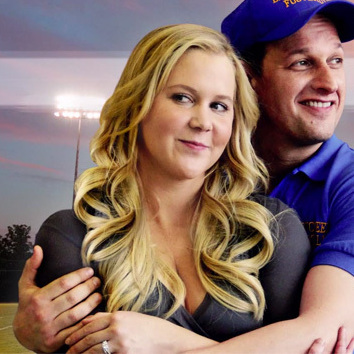
Another sneak peek into the Mental Health Issue, folks. Order up! They’re going going going…
We first came across the name “Heather Havrilesky” back in 2011, when The New York Times Magazine published a column under her name comparing two television shows set in high school, Friday Night Lights and Glee. She noted how the former found beauty in the fragility and uncertainty of life, and virtue in selflessness, while the latter seemed to revolve around the bold-faced pursuit of personal glory and vindication. Here was someone putting fresh words to some of our favorite themes, with a wit and compassion that we could only dream of mustering.
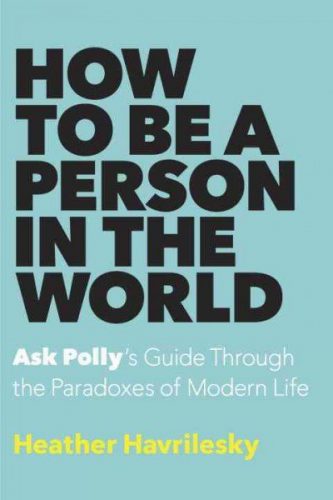 Since then, seldom a week has passed when we haven’t been on the lookout for her by-line. In fact, we probably owe her some royalties at this point. Because no matter what the topic—be it authenticity or marriage or de-cluttering or aging or The Pioneer Woman—we never fail to benefit from Heather’s uncanny knack for discerning “the story beneath the story.” Where some see the explosion in the popularity of extreme fitness, she sees the rise of a secular, and quite oppressive, religion. Where audiences and networks flock to tales of the “happily divorced” (The Real Housewives, etc.), she sees a culture’s sad compulsion for recasting painful events as triumphant rites of passage—an intolerance of life’s essential unmanageability.
Since then, seldom a week has passed when we haven’t been on the lookout for her by-line. In fact, we probably owe her some royalties at this point. Because no matter what the topic—be it authenticity or marriage or de-cluttering or aging or The Pioneer Woman—we never fail to benefit from Heather’s uncanny knack for discerning “the story beneath the story.” Where some see the explosion in the popularity of extreme fitness, she sees the rise of a secular, and quite oppressive, religion. Where audiences and networks flock to tales of the “happily divorced” (The Real Housewives, etc.), she sees a culture’s sad compulsion for recasting painful events as triumphant rites of passage—an intolerance of life’s essential unmanageability.
To read her columns is to receive a lesson in the counterintuitive truth that a more sober or pessimistic understanding of human nature does not necessarily produce defeatism or despair. It may even promote the opposite. As author Reynolds Price told The Georgia Review in 1993, “The whole point of learning about the human race presumably is to give it mercy.” Yet this probably makes her writing sound far less entertaining than it is. In addition to serving as Queen Empathy, the lady is funny.
After a number of years of writing television criticism for Salon (and serving as a regular commentator on NPR’s All Things Considered, among other things), Heather took up the task of penning a weekly advice column, Ask Polly, first on her own, then for The Awl, and currently for New York Magazine, where its following can be affectionately described as cultish. In July of 2016, Doubleday published the first Ask Polly collection, How to Be a Person in the World, which we’re pleased (but not surprised) to report brims with her delightfully profane brand of profundity. We were delighted to have the opportunity to speak with her.
Mockingbird
One of the principle notions that comes through in your writing—but is easier said than done—is the permission you give people to feel whatever they’re actually feeling, even if it’s negative. There’s so much expectation and self-talk that needs to be dismantled, presumably because most of us structure our lives so as to never feel anything bad. Is this a common theme you think?
Heather Havrilesky
Yeah. You grow up and are told that your emotions are something that will threaten your livelihood and your survival. We’re all raised in some ways by survivalists. We come from a long line of survivalists—people who would die if they didn’t put their feelings aside and do what they should do or could do. Having inherited this message, we are not always well suited to the modern, more neurotic, more frenetic, more callous world.
In the past, we could afford to put our feelings aside. But nowadays, with the modern ways that we move through the world, the ways we don’t interact with nature, the ways that we don’t interact with each other face to face, and the ways that we suck down the toxins of a broadcast from far away about how we should be living, it’s hard not to be neurotic. We’re imbibing and metabolizing these toxic messages, and it’s hard not to tell yourself that you’re doing it wrong every second of every day.
The irony of social media is that you feel connected to other people, but you also feel pressure to be more perfect than anyone on a farm two hundred years ago ever would have felt. There’s a jarring feeling of, on the one hand, the ease of inspiration, but on the other hand, the ease of inadequacy. On the one hand, it’s easy to feel confident and inspired and reinforced, to have like-minded people at your fingertips; but it’s also easy to feel alienated and sick of people and sick of the same messages. There’s a way that all of these things feel very personal in ways that they didn’t even ten years ago.
M
You have two young daughters, I believe. We all loved that piece you did in The Baffler about play, in which parents don’t have the imaginations to engage toddlers so they have to embrace this cultural imperative to work at playing better.[1] How did you make it through toddlerhood with your children?
HH
I think people hold themselves to too high a standard when their kids are very small and then let themselves off the hook when their kids are bigger. I have a teenage stepson who’s nineteen, about to turn twenty, we share custody with his mom, and I don’t know yet what it’s like to have two teenage daughters in my house, but it’s going to be harrowing.
I think when kids are very, very small, you can’t put them down by design. But I think toddlers are built to test your patience. Not everybody is well equipped to engage in quality playtime with a toddler all day long. It’s something people expect themselves to be able to do, especially women: that they should be there playing with their kid all day long, in the morning and at night. Whenever the kid is conscious he should be played with.
My personal philosophy is that your kid should get used to being ignored. Not ignored with a screen in front of him or her but ignored in your company. At home, with you, with friends and family, but ignored. I’m not talking about being unsafe, but telling your kids to go do something. I say that to my kids often and I feel like I now have kids who read like crazy, invent things, and amuse themselves.
M
You tweeted something the other day: “I’m sort of glad I’ll be dead before the time all these kids who’ve never heard the word ‘no’ grow up.”
HH
Well, it’s not really fair. I don’t want to say that today’s toddlers are all going be a greater menace on the world than the menaces that we are already seeing. I’m just amazed that there are really smart people who don’t know how to say ‘no’ to their children. I’m not talking about kids crying on an airplane. Once you have kids you know that kids cry on an airplane. But I do think people believe their young kids can be reasoned with in every situation, and that’s not true. There are situations when kids need to be told, “You’re not allowed to do that, period.”
Again, I’m not trying to cast aspersions. None of us get it all right. I don’t write that much about parenting right now because I feel very humbled by it. Even if you feel like you’re doing well, it’s always immediately thereafter that your kid has a meltdown in public. It’s endlessly humbling. Twenty years down the road, when I feel like I’ve done my job, I can maybe look back and have some decent things to say about the whole picture, but right now I’m just in the middle of it.
M
One thing you do seem to be writing about quite a bit, in your book at least, is the way people today are brought up to think that there’s one person out there that’s going to solve all of their issues. I hear you trying to disentangle people, with a huge amount of compassion and empathy, from this ‘soulmate myth.’
HH
I definitely think that it’s a problematic mindset. I was in that space for a long, long time. But by the same token, I never want to discourage people from believing in true love, because I believe in it, and I think I probably would not have found it if I didn’t believe in it.
You can be open to love and also know that love will not fix everything or save you from yourself. As you know, when you’re married and you’re going be with someone the rest of your life, you still have to scrape yourself off the floor a lot. One of the great joys of marriage is the resolution of the question, “Can anyone save me?” What you learn in a marriage is: I’ll have help when I need it, I’ll have company when I need it, but there are a lot of things that I can only do myself.
I don’t think I took responsibility for myself completely, and took responsibility for what was going make me happy, until I gave up on the idea that someone would save me. Early on in my marriage, there was a time when I felt like I ceded some of my power to my husband, thinking, “Well, he’ll handle these things and I’ll never have to handle them again. Maybe I can just hide from the world in my house and have babies.” There are a lot of different ways you can seek refuge in a relationship. The early years of my marriage were in some ways a confrontation: an era of confronting the limits of codependency, if you want to call it that.
That’s a natural thing to do when you’re first married: hide in the marriage, resolve that this was all you ever needed. And that’s how true love feels. It’s so comforting that part of you feels that you can get everything you want from it. And yet when you test its boundaries you learn you actually can’t. I need a lot of other things. And I don’t think I really knew my other needs until I was married, and I had the freedom to say, “Okay, some of my emotional needs are now taken care of, and now I feel supported enough to go out into the world. What else do I want? What do I want my career to look like? What kind of relationship do I want to have with my kids?”
M
Is there anything that you wish someone had told you before you got married? Or is it wisdom you could only have learned in the trenches?
HH
I wanted to marry a lot of people that I should not have wanted to marry. I think I ignored a lot of voices in my head that said this person is completely wrong. I remember I lived with one boyfriend, and I’d get in bed at night and think, You’ve gotta get out of this. And yet, because my bad brain made all kinds of bad sounds at me, I just filed it in with all the other bad sounds. Sounds like, You should be thinner, you should work harder, you should be more famous by now, all kinds of bullshit. Part of it is learning to be kind to yourself. Until you’re kind to yourself, you’re going to settle for people who aren’t kind to you.
Once you’re in a marriage, you learn that the beginning of a marriage is really hard. You end up having the feeling over and over again of Oh my God, I’m going to have to put up with this for the rest of my life. I can’t believe that this is what’s going to be happening for the rest of my life.
And then, about five or eight or ten years in, that changes. It starts to be, My God, I’m not gonna be alive that much longer—I better enjoy this. It shifts. The rest of your life feels like forever when you’re young and you’ve only been with someone for a few years. The years go by quickly. You’re married, you have kids, the years speed up. You get to a point where you think, I’m so lucky—this is actually amazing. I’m not paying enough attention to the amazing things. I think your fear naturally dissipates.
M
Speaking of which, you’ll be happy to know, or horrified to know, your diarrhea story made it into one of our most recent sermons[2].
HH
Oh no. Well, that’s wonderful to know. I’m so thrilled.
M
That column, about the state of a romance ten years in, is really beautiful. It should be assigned reading for anyone doing premarital counseling.
HH
That’s funny. Were people grossed out? Visibly disgusted?
M
Oh no, everyone laughed. We should all be so lucky to in our respective relationships.
HH
Yeah, if you don’t scare someone off with that, you got to figure you’re safe.
M
You clearly field these relationship questions week in, week out, and I know a lot of the same stuff comes up. How do you avoid getting cynical? How do you ride the line between rolling your eyes and actually wanting to reach out?
HH
I think that I am still cynical sometimes. I don’t think that it’s the end of the world to be a little bit cynical. You can keep your heart open and still feel skeptical and cynical and pessimistic and angry at the same time. It’s impossible to get twenty letters a week from young people who are trying to figure out their lives without reading some of them and thinking Oh, brother. It’s impossible. Because you read someone’s self-reported story and you see how they’re tricking themselves—and you see that through the benefit of your own experience, having been there before.
Sometimes these are the best letters of all. I got a letter I love recently, about a woman who was dating a guy who said from the beginning that he couldn’t get serious. They became romantic friends and things got a little more hot and heavy and he continued saying, “Hey, I think you’re getting in too deep.” She kept going along with it, but was growing a little bit angry with him. Essentially it was this strange circular story where she kept tricking herself over and over and over again, every step of the way, that she was having this whirlwind love affair that would eventually turn into a long-term relationship—even though he explicitly said otherwise.
It’s funny because, at first, I’m cynical. I just want to shake the letter writer and say “Wake up! Look at what you’re doing! Look at how you choose pain over happiness!” The benefit of the column being very long-winded, though, is that I work myself into a state where I remember how it is to trick myself, and I remember why I used to trick myself, and I remember knowing that I was tricking myself and doing it anyway. You do it because you’re lonely, and you do it because this is the one thing in front of your face.
A part of maturity, I think, is being able to back up just a little bit. But it is hard to do that when you’re in it. In my column, once that empathic connection is there, then it’s possible to remind myself that all kinds of different people—people who are messing up in all kinds of crazy ways; people who, if you only thought about it for a second, you would write off as morons—all deserve your compassion. All my columns circle back to that: we’re all in this together; we all have the same weaknesses. Weaknesses are not shameful, and we’re all crawling on our knees together, and as long as we know that and we reach out toward each other then we’re stronger, and actually crawling is a beautiful thing.
M
You end one of your columns (a column which also winds up in the book) writing: “Life is not about knowing. Life is about feeling your way in the dark … So let there be darkness. Get down on your knees, and crawl through the dark. Crawl and say to yourself, ‘Holy God, it’s dark, but just look at me crawl! I can crawl like a motherfucker.’” It’s a great final line.
HH
When I go back to these things, I always bring in the darkness and debasement, because I feel like there’s something in it. If you’re only walking in the clouds, you don’t really feel where you are. If you remember that we’re all humble beings that move through the world at the mercy of powers greater than ourselves, that’s oddly the most empowering thing you can feel. I don’t know why, but that’s really moving to me. As you get older, you begin to wonder how long you’ll have this, and that’s a beautiful thing to feel. The more in touch with your humble, debased self you are, the more in touch with your divine spark you are. I don’t know why that is and I don’t know what the hell that is about at all, but that’s what I find in my life.
M
We are all so afraid of talking about our weaknesses, but in fact the acknowledgement and acceptance of our shared vulnerabilities is somehow the key to our future strength.
HH
I think you can’t help other people really until you know that you are only a tiny sliver of an experience or a wrong turn away from them.
M
One of our contributors wrote something about the mother of the child who recently fell in the gorilla pit at the Cincinnati Zoo, saying that we’re all only one day away from being headline news. People hate that idea. It insults their pride.
HH
There’s a shared delusion that there are people who think the right way and people who think the wrong way. And if you’re not in touch with the fact that there are people who are sometimes a little bit careless, and you are too, or that there are people who are scared, and you are too, then it’s easy to sustain your anger and call everyone else an idiot.
M
It seems like this self-understanding—of knowing your capabilities and culpabilities—is a sign of mental health. Do you have an operating definition of mental health? Or anything close to it?
HH
Mental health is a heavy term. I feel very humble in the face of diagnosable afflictions. It’s not my place to hold forth on the real troubles that afflict people. But my definition of health—being a healthy human being in the world—is learning not to fight your own divine, brilliant impulses.
People destroy other people when they’re at war with themselves. When people accept that impulses that seem violent are linked to perfectly peaceful loving impulses, anger at other people is just anger at yourself that’s misdirected.
Perhaps that sounds very self-indulgent, but all I know is that, in my own life, the more I accept that I can’t be some perfect version of myself, that I can’t get better and better and better every day, the freer I feel and the more I’m able to give to other people. I don’t think I was even remotely capable of giving anyone anything for the first 30 years of my life. I’m forty-six now and I’ve slowly crawled out of that state of I need more I need more I need more. Ironically, what gave me permission to just be messy and flawed is the very thing that also allowed me to accept messy and flawed people and give them love without conditions.
[1]“Play, Dammit!” The Baffler, No. 24, 2014.
[2] “What Romance Really Means After 10 Years of Marriage,” New York Magazine, February 9, 2016.

COMMENTS
One response to “Mockingbird Asks Polly: Our Interview with Heather Havrilesky”
Leave a Reply









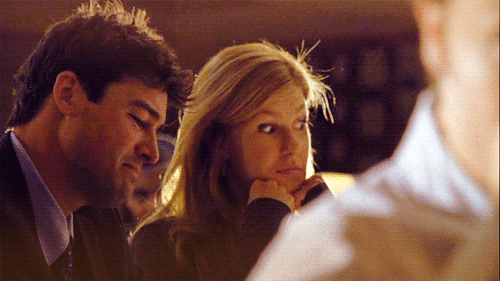
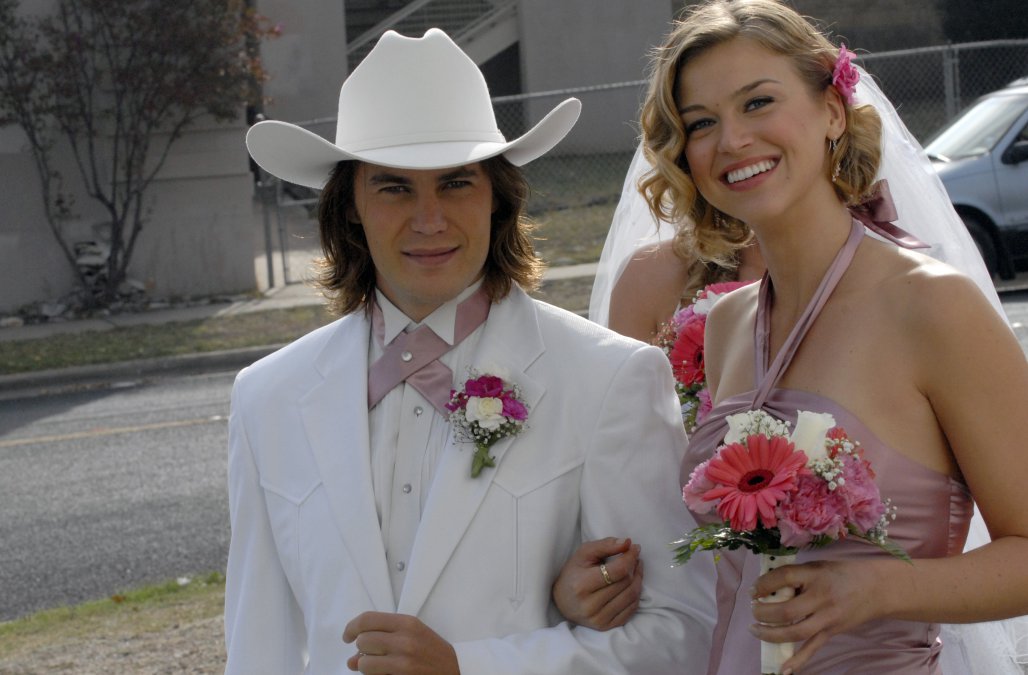
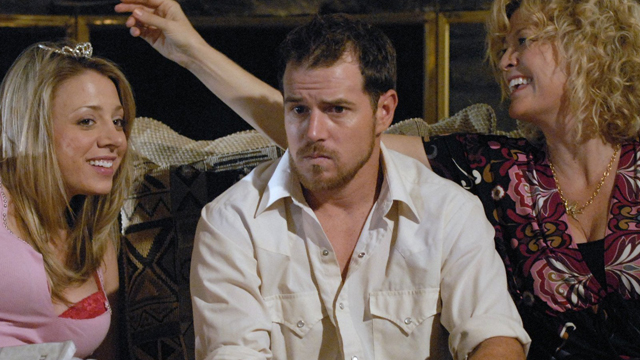
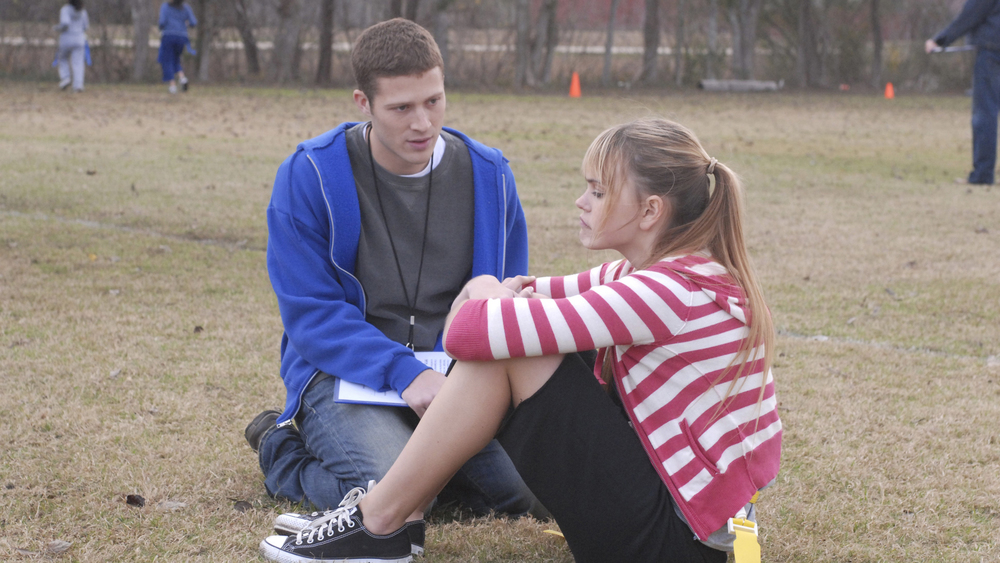
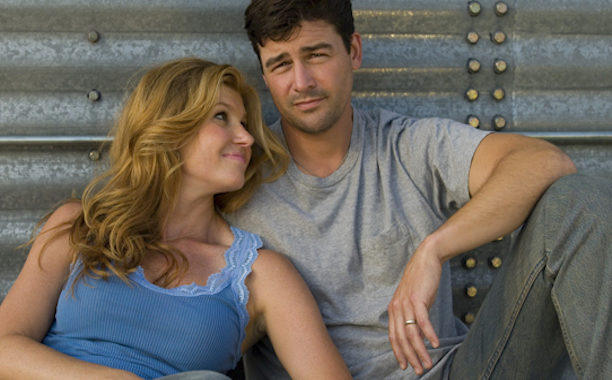




[…] also the Mbird interview of Havrilesky five-plus years ago for the “Mental Health Issue” of the […]